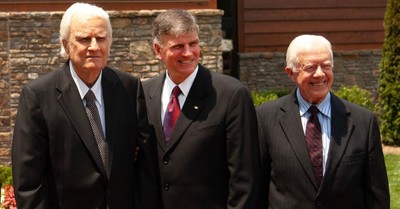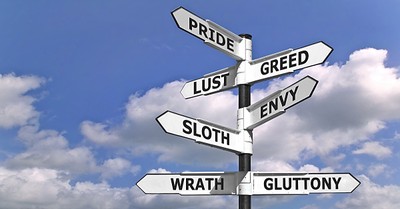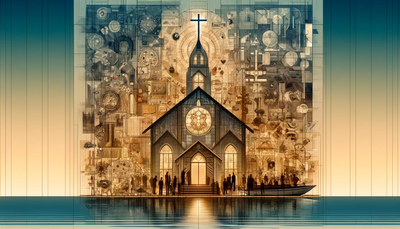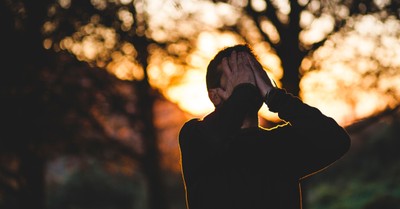Part One
Where Were You: Persecution in Burma
Since late September, the crackdown on pro-democracy forces in Burma has brought unwelcome attention to one of the most oppressive regimes on Earth.
For many people, the defining image of the Burmese struggle for human rights has been Buddhist monks in red robes staging demonstrations. Reports about Burma focus on the plight and plans of the estimated 400,000 Buddhist monks in the country.
Given the coverage, people might be surprised to learn that Burma not only has a substantial Christian population, but that these Christians have long been the junta’s preferred target.
Late last month, French Foreign Minister Bernard Kouchner called on China to use its influence with the Burmese government to promote democratic reform. Aside from the unintentional irony of China promoting democratic reform anywhere, I could only wonder of the French foreign minister, “Where were you when Burma’s Christians needed you?”
For instance, the U.K. Telegraph reported about a Burmese government document describing a plan for eradicating Christianity in that country. The document began with the words “there shall be no home where the Christian religion is practiced.”
What followed were “point by point instructions on how to drive Christians out of the state.” While the junta denied authorship of this specific document, it “made no public attempt to refute or repudiate its contents.”
It could hardly do otherwise—its persecution of Burma’s Christian minority is well-documented. Christian churches have been torn down and replaced by Buddhist pagodas; and Christians have been forced to financially support Buddhist projects and festivals.
It gets worse: Christian children have been removed forcibly from their homes never to be seen again. And members of largely Christian ethnic groups—the Chin, Lachin, and Karen—have been tortured by the Burmese army. Christian women are gang-raped by soldiers, killed, and their mutilated bodies placed on display as a warning to others.
Not surprisingly, the treatment of Burmese Christians does not figure prominently in recent news reports about the Burmese democracy campaign. Actually, their treatment scarcely registers at all.
I say “not surprisingly” because, sadly, the media has a blind spot when it comes to the persecution of Christians. For instance, you can listen to several months’ worth of news about Iraq, and, with a few honorable exceptions, never hear about the plight of Iraqi Christians. There was a similar journalistic silence about the treatment of Sudanese Christians by that country’s Islamic-led government—until, that is, many of us staged a noisy campaign.
But this is why it is up to Christians to provide a more accurate picture of human rights around the world. And equipping Christians to complete that picture is one of the goals of the International Day of Prayer for the Persecuted Church. It will be observed Sunday, November 11. The goal of this Day of Prayer is to unite citizen action to intercessory prayer on behalf of our persecuted brethren.
Citizen action requires informed citizens, which is why I am telling you today and tomorrow about Christians who need your help. Because when we are asked, “Where were you when the persecuted Church needed you?” I want you to be able to say, “Right by their side.”
Part Two
Dalits and Religious Persecution
In the past decade India has enjoyed an economic boom fueled, in large part, by trade in services with the United States. Sadly, many Indians, however, have not benefited from the boom, chief among them the Dalits, or, as they used to be called, the “untouchables.”
On October 2, Mohandas Gandhi’s birthday, 25,000 Dalits from across India set out on a Gandhi-style protest march to New Delhi. They protested their continuing marginalization within Indian society, which is especially intolerable in the midst of unprecedented economic growth.
It is difficult for any American to imagine how marginalized the Dalits are. They are considered to be less-than-human by much of Indian society. Because of this, they are relegated to “the most squalid jobs,” as Stephanie Giry put it in Foreign Affairs magazine—for example, cleaning human waste.
As one Dalit woman told the BBC, she cleaned toilets because that was the only way she could feed her children. The woman’s daughter said that she “tried looking for a job in a school or nursing home, but no one would take” her. “The first question they always ask is your caste-system.”
The Indian government has enacted anti-discrimination laws and created programs to compensate for this discrimination. Yet the Dalits’ place within the “Hindu religious and social hierarchy” limits the impact of these laws. More than 2,000 years of culture and religion often trump the law.
Little wonder that millions of Dalits have sought to escape that hierarchy by converting to Christianity. According to the Wall Street Journal, the “overwhelming majority” of India’s Christians are Dalits.
This, in turn, gives their Hindu neighbors and local government two reasons to discriminate against them: their caste and then their Christian faith.
In fact, if a Dalit converts to Christianity, he risks losing whatever little anti-discrimination protection and benefits are offered to Dalits—benefits that, however, can mean a decent chance at life.
Despite the risk, Dalits continue to convert—an estimated 25 million so far. Because of this double discrimination, they often have to practice their faith in secret. As one Dalit teacher told the Wall Street Journal, “If [officials] ever find out I’m a Christian, I will lose my position.” He and other Dalit Christians are forced to live a kind of double life: appearing to be a Hindu in public but limiting expressions of their faith to their homes and churches.
The situation in what’s called the “largest democracy in the world” reminds us that “democracy” and elections are not enough—there needs to be a commitment to the “first freedom”: freedom of religion. There needs to be a recognition that all freedoms grow out of what one of our founders James Madison called “the act of freedom by which each responds to the call of his Creator.” And it is time to start reminding India that business-as-usual with us does not include continuing to treat our brothers as “untouchable.”
So this Sunday, on the International Day of Prayer for the Persecuted Church, remember to pray for the Dalits and our persecuted brethren around the world. And this year, resolve with me to pray for the persecuted Church not just on this designated day, but year-round, “without ceasing.”
This article originally appeared on BreakPoint. Used with permission.





















